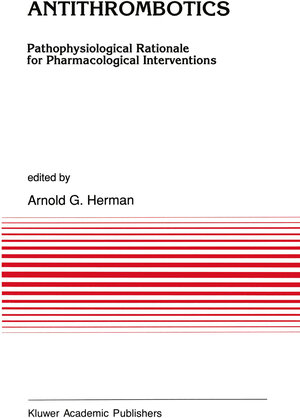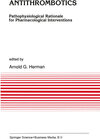
×
![Buchcover ISBN 9789401134842]()
Antithrombotics
Pathophysiological Rationale for Pharmacological Interventions
herausgegeben von A.G. HermanInhaltsverzeichnis
- 1. Platelet activation and aggregation: rationale for combining antithrombotic drugs.
- 2. Role of nitric oxide in endothelial cell - platelet interactions.
- 3. Platelets and megakaryocytes in vascular disease.
- 4. Thrombosis in relation to atherosclerosis.
- 5. Pharmacological inhibition of the ADP-GP IIb/IIIa-fibrinogen pathway of platelet aggregation.
- 6. Calcium fluxes in platelets and endothelial cells, mechanisms and functional significance.
- 7. Inhibition of platelet function by cyclic nucleotides and cyclic nucleotide-dependent protein kinases.
- 8. Pharmacological modification of platelet-derived cyclooxygenase product formation and its consequences for platelet-vessel wall interactions.
- 9. Antithrombotics and the lipoxygenase pathway.
- 10. Pathological expressions of platelet-vessel wall interactions: implications of serotonin.
- 11. The involvement of PAF in thrombotic events.
- 12. Prostaglandins and -analogs in the treatment of platelet-vessel wall interaction.
- 13. Adjuvant agents to enhance and sustain reperfusion with t-PA: studies in experimental dog models.
- 14. Effect of dietary marine lipids on (anti-)thrombotic mechanisms.



